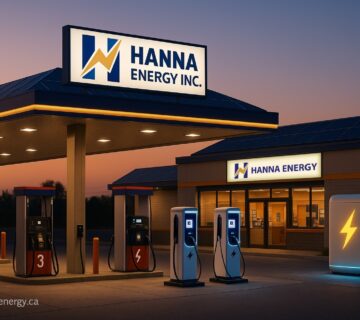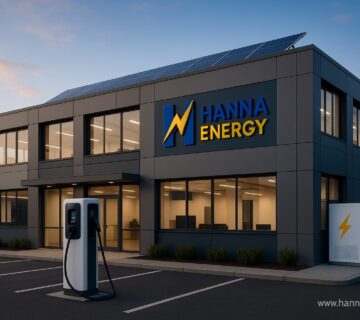Discover how solar systems can power your home efficiently. Read our comprehensive guide for in-depth answers to common questions about solar energy.
Introduction:
As the world shifts towards sustainable energy sources, solar power has emerged as a viable solution for homeowners. Installing solar systems not only reduces reliance on fossil fuels but also helps save money on electricity bills. In this comprehensive guide, we will explore frequently asked questions about solar systems for houses.
Frequently Asked Questions (FAQs)
Q1: Are solar systems suitable for all types of houses?
When determining the suitability of a solar system for your house, several factors come into play. The first consideration is the available roof space or land area for solar panel installation. Ideally, your roof should have enough unshaded space to accommodate the solar panels and maximize sunlight absorption.
Another important aspect is the amount of sunlight your property receives. Solar systems operate most efficiently in areas with ample sunlight, but they can still generate electricity even in regions with less sunshine. The orientation and tilt of your roof also affect solar panel performance, with south-facing roofs typically being the most optimal.
Additionally, technological advancements have made solar systems more flexible, allowing for different installation methods. For houses with limited roof space, ground-mounted or solar canopy systems can be viable alternatives.
Overall, with the right assessment and customization, solar systems can be successfully integrated into various house types, enabling homeowners to harness sustainable energy and reduce their carbon footprint.
Q2: How much do solar systems cost?
The cost of solar systems can vary depending on several factors, but they are generally more affordable and accessible today than ever before. The total cost of a solar system includes equipment, installation labor, permits, and any additional expenses associated with customization or upgrades.
The size of the system plays a significant role in determining the cost. Larger systems with more solar panels will generally be more expensive. Additionally, the brand and quality of the components used, such as solar panels and inverters, can impact the overall cost.
It's important to note that while the upfront investment may seem significant, solar systems offer long-term financial benefits. They can significantly reduce or even eliminate electricity bills, resulting in substantial savings over the lifespan of the system.
On average, residential solar systems can range from $10,000 to $30,000. However, it's crucial to consider potential incentives, tax credits, and financing options available in your area, as they can offset the initial cost and make solar systems even more affordable. Consulting with reputable solar installers and obtaining multiple quotes will help you determine the specific cost for your unique circumstances.
Q3: What is the payback period for a solar system?
The payback period for a solar system refers to the time it takes to recover the initial investment through electricity bill savings. Several factors affect the payback period, including the cost of installation, electricity rates in your area, and the amount of sunlight your system receives.
On average, most residential solar systems have a payback period ranging from 5 to 10 years. However, it's essential to consider the long-term benefits beyond the payback period. Once the initial investment is recouped, you can enjoy virtually free electricity for the remaining lifespan of the system, which typically ranges from 25 to 30 years.
Q4: Can solar systems operate during a power outage?
Standard grid-tied solar systems without battery storage cannot operate during a power outage. However, there are options available, such as hybrid solar systems or solar systems with battery backup, which allow you to have electricity during blackouts. These systems store excess energy in batteries, which can then be used to power essential appliances and devices when the grid is down.
Q5: Do solar panels require regular cleaning?
Solar panels generally require minimal maintenance. Rainfall often washes away dust and dirt, keeping them relatively clean. However, if you live in an area with less rainfall or experience heavy pollution, occasional cleaning may be necessary. Use a soft brush or sponge with non-abrasive soap and water to gently remove any dirt or debris.
Q6: Are there any government incentives for installing solar systems?
Canada: The Government of Canada offers various incentives and programs to support the adoption of solar energy. To explore the available incentives in Canada, you can visit the official website of Natural Resources Canada: https://natural-resources.canada.ca/energy-efficiency/homes/canada-greener-homes-initiative/canada-greener-homes-grant/canada-greener-homes-grant/23441https://www.nrcan.gc.ca/energy-efficiency/energy-efficiency-homes/grants-and-incentives/21836
USA: The United States offers a range of federal and state-level incentives for solar energy installations. To discover the specific incentives and tax credits available in the USA, you can visit the Database of State Incentives for Renewables & Efficiency (DSIRE) website: https://www.dsireusa.org/
Q7: How can I determine the right size of the solar system for my house?
Determining the appropriate size of a solar system for your house requires a thorough assessment, primarily focusing on the roof's suitability for solar panel installation. Several factors need consideration during this evaluation.
The assessment starts by examining the available roof space, orientation, and tilt. South-facing roofs with minimal shading typically offer the best solar potential. Additionally, the structural integrity of the roof is assessed to ensure it can support the weight of the solar panels.
The next step involves analyzing your household's electricity consumption. By reviewing past electricity bills and considering future energy needs, an estimate of the system size can be determined. Other factors, such as your location's average sunlight hours and local regulations, are also taken into account.
To ensure accurate sizing, it is advisable to consult with a qualified solar installer. They will conduct a detailed assessment, taking all these factors into consideration, and provide you with recommendations for the optimal size of the solar system tailored to your specific requirements and the characteristics of your roof.
Q8: Can solar systems be integrated with existing electrical systems?
Yes, solar systems can be seamlessly integrated with your existing electrical system. A professional solar installer will ensure proper connection and compatibility with your electrical panel. A certified electrician makes sure that all safety and code requirements are implemented. The solar system will be connected to the main electrical panel, allowing solar-generated electricity to supplement, or offset the power supplied by the grid. This integration enables a smooth and efficient transition to solar energy, allowing you to utilize the clean, renewable electricity produced by your solar system to power your home while remaining interconnected with the grid when needed.
Q9: What maintenance is required for solar panels?
Routine maintenance for solar panels is minimal. It mainly involves visually inspecting the panels for any physical damage or debris and ensuring that they are free from shade. Additionally, you may need to monitor the performance of the system through the provided monitoring software or tools to identify any significant changes in energy production.
Q10: What is net metering, and how does it work?
Net metering is a billing arrangement offered by many utility companies that allows solar system owners to offset their electricity costs and potentially earn credits for excess energy produced. When a solar system generates more electricity than the home consumes, the excess energy is sent back to the grid, and the utility company credits the homeowner's account.
During times when the solar system isn't producing enough electricity, such as at night, the homeowner can draw power from the grid and use the credits earned to offset the cost. Net metering ensures a fair exchange, enabling homeowners to effectively "store" excess energy on the grid.
The specific net metering policies and regulations vary by utility company and location. It's important to check with your local utility provider to understand their net metering program, including eligibility requirements, the rate at which excess energy is credited, and any limitations or conditions that apply. Net metering can help maximize the financial benefits of solar power and promote a more efficient use of renewable energy resources.
Conclusion:
In conclusion, harnessing solar power through the installation of solar systems offers homeowners a sustainable and cost-effective solution. By thoroughly understanding the answers to frequently asked questions about solar systems, you can make informed decisions and reap the benefits of reduced electricity bills, environmental friendliness, increased property value, and potential government incentives. Embrace the sun's abundant energy and contribute to a greener future with solar systems for your house.



